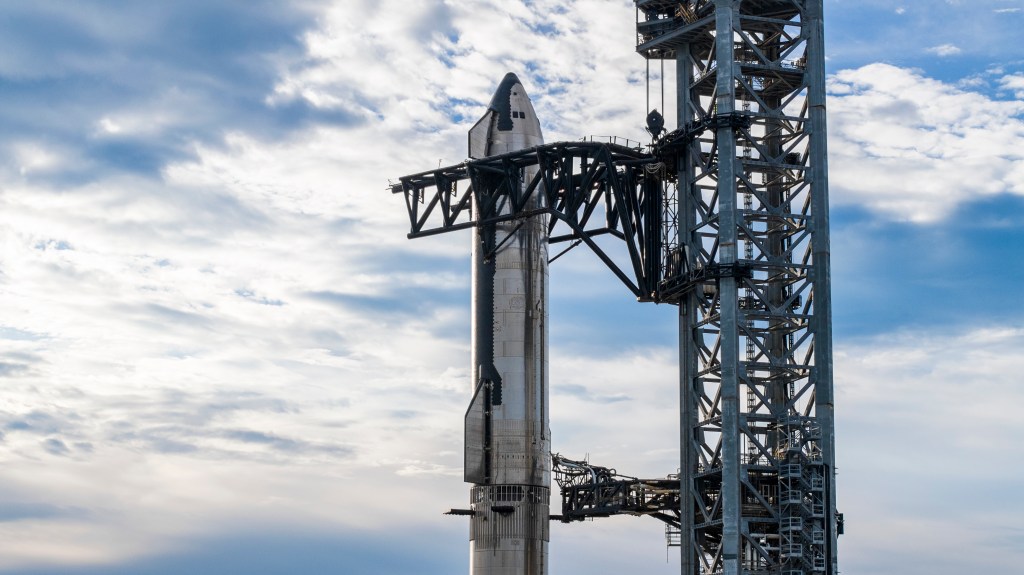SpaceX will attempt to send the massive Starship rocket to orbit for the third time early Thursday morning after U.S. regulators gave the green light for launch.
The company is aiming to complete the launch within a 110-minute window that opens at 7:00 a.m. CT. Starship testing is conducted from SpaceX’s sprawling Starbase campus near Boca Chica, Texas, though the company will livestream the launch on its website and on the social media site X starting at 6:30 a.m. CT.
SpaceX has conducted two test flights of the 400-foot-tall rocket so far. The first took place last April, and ended with both the upper stage (which is also called Starship) and the Super Heavy booster exploding mid-air. The company made considerable progress during the second orbital test flight, though it too eventually ended in the destruction of the vehicle.
These events are considered anomalies — a polite industry term that includes everything from minor component failures to, in the case of the Starship launches, spectacular explosions. Anytime an anomaly occurs during a rocket launch, the Federal Aviation Administration steps in to oversee a company-run investigation. The investigation into the second Starship launch closed last month, so the only thing left was for the regulator to issue a launch license for the test flight.
SpaceX implemented a number of hardware changes and upgrades as part of that investigation, and as part of its more general approach to iterative hardware design.
This test raises the stakes in a few different ways. The company is aiming to demonstrate new capabilities, including a fuel transfer demonstration, the opening and closing of the upper stage’s payload door and relighting a Raptor engine in space for the first time. Due to the in-space engine burn, the company is also targeting a new flight trajectory, with the upper stage splashing down in the Indian Ocean.
Starship is integral both to SpaceX’s business plans and NASA’s ambitious Artemis program, which aims to return humans to the moon by the end of the decade.































Comment